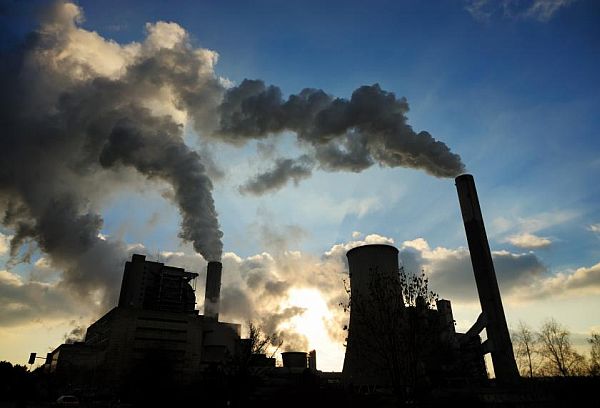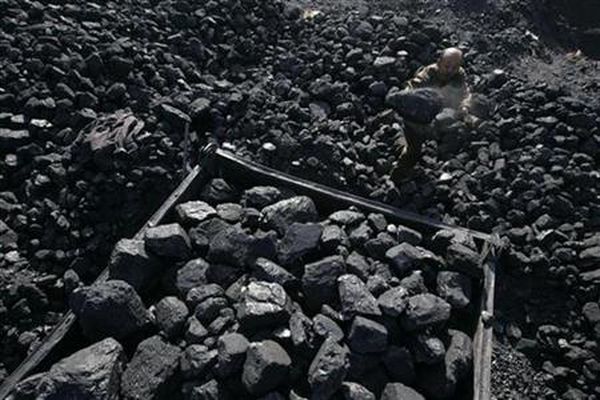When we are talking about fossil fuels, we mean petroleum, coal, and natural gas. These are the main source of energy and electricity. However, like many other resources, we derive energy from fossil fuels when we burn them. This not only extinguishes them but also turns them into toxic pollutants. Moreover, fossil fuels are formed inside the earth’s crust through the fossilization of animals and plants for many centuries. We cannot manufacture them artificially and naturally, the fossil fuel reserve is not sufficient for powering human civilization for ages. In fact, the scarcity of fossil fuels has raised the price of fuels like diesel, petrol, coal, and fuels derived from them. Therefore, before we decide to burn even more of it, we should read these fossil fuel burning facts.
Fossil fuel burning facts for the layman
1. The number one cause for environmental pollution

The problem with fossil fuels is that they have to be combusted for generating energy. It is this energy that we utilize for electricity or driving vehicles. The combustion of fossil fuels emits carbon dioxide and other Green House gases. These are responsible for global warming and air pollution. With the rising population density in developed and developing countries, the use of fossil fuels for different purposes is also increasing.
2. Non-renewable

Nature is unable to replenish the fossil fuels that are being excavated regularly from the depths of earth. At the same time, no one can deny the importance of fossil fuels. The geopolitical role they play in the progress of human civilization is very important. It is not at all easy to stop using the non-renewable resources of energy and start depending on the renewable energies alone. Before reaching the refineries, petroleum is just a complex mixture of hydrocarbon chains, yellowish black in color and smelly. It is called crude oil. After refining different usable fuels like diesel and petrol are produced.
3. Extensive usage

An approximate 36% of the total amount of non-renewable energy resources used annually is in the form of crude oil or petroleum. The energy stored in these non-renewable fuels in the form of atomic bonds. When combusted, the atomic bond breaks easily and energy is released. According to research and surveys, the coal reserves of the earth will last for the next 1500 years if the usage does not increase. The problem is that the usage is increasing at a rate of 5% annually. At such a growth rate, the coal reserves will be exhausted within the next 100 years.
4. Disappearing quickly
 A survey shows that the total fossil fuel used in the year 1997 alone took 422 years for nature to make. It is easily understandable how every year we are draining the fossil fuel reservoirs faster than the last. Fossil fuel combustion causes both direct and indirect pollution. Apart from the carbon emissions that pollute the air, fossil fuels also cause acidification, water pollution and ruin the lands. As we cannot stop using fossil fuels completely, the dependence should be limited to make the fossil fuel reserves last longer.
A survey shows that the total fossil fuel used in the year 1997 alone took 422 years for nature to make. It is easily understandable how every year we are draining the fossil fuel reservoirs faster than the last. Fossil fuel combustion causes both direct and indirect pollution. Apart from the carbon emissions that pollute the air, fossil fuels also cause acidification, water pollution and ruin the lands. As we cannot stop using fossil fuels completely, the dependence should be limited to make the fossil fuel reserves last longer.
Giving up fossil fuels can save cities a world of pain
The cities are the worst affected areas. Moreover, they will continue to bear the brunt of negative effects of global warming and pollution if the governments do not take action right now. Divestment from fossil fuels is necessary for preventing the demolition of cities around the world and restoring balance in the environment.
Privatization of resources to blame

There are many benefits of divestment from fossil fuels but the challenges are more in number. The government is now accusing the oil and gas companies, which have been unscrupulous about the procurement of fossil fuels and their sale. Political action against these companies can bring substantial change in the methods in which fossil fuels are acquired for commercial use.
The Mayor of Seattle, Michael McGinn, and the Mayors Innovation Project have declared together that nine mayors and City Councils in the United States are trying to convince city dwellers and organizations to boycott the fossil fuel selling companies and divest from their use. They are also promoting the use of clean fuel that causes less harm to the global environment. They feel responsible for the future of the human civilization and want to prevent the negative impacts of global warming on the cities. The effects of global warming can range from simple climatic changes to cyclones, floods and heat waves.
Divesting from fossil fuels
 Divest-Invest is a coalition organization of global organizations and the US, which is working on preaching the benefits of divesting from fossil fuels and they are also investing in clean energy sources for making them more commercially viable. But, it is going to be difficult to completely ban or boycott the petrochemical giants like BP.
Divest-Invest is a coalition organization of global organizations and the US, which is working on preaching the benefits of divesting from fossil fuels and they are also investing in clean energy sources for making them more commercially viable. But, it is going to be difficult to completely ban or boycott the petrochemical giants like BP.
BP oil spill led to proposals of boycotting the company but the efforts failed miserably. The company has not suffered from any losses and they continue to conduct business in the same way as before. The research conducted by HSBC shows that if the decision of keeping global warming down by 2 degree Celsius works then the oil merchants will lose market value by 60%. That’s why they will try their best to stop the campaign from being successful.
Divesting from fossil fuels is important for reducing the ill effects of global pollution. Countries like the US and global organizations are trying to promote clean energy sources.
Renewable alternatives to fossil fuels
1. Wind Energy

Wind energy is one energy source, which is available in abundance in nature and can be used to harness electricity. Additionally, at many places it is also used for pumping water and is considered a renewable energy source that can be quite useful.
2. Solar Energy

Similar to wind energy, solar energy holds great potential as an alternative energy source to replace fossil fuel energy. Solar energy can be used to heat water apart from being used to generate electrical energy. Nowadays there are various appliances available, which are powered by solar energy and help to reduce our reliance on non-renewable energy sources.
3. Nuclear Energy

Another source of energy that holds good potential is nuclear energy and can easily replace non-renewable energy sources. However, more research is going on to make use of such energy safer and in the future, we can see nuclear energy being used to its full potential.
4. Bio Fuel

There are several other alternative energy sources available such as bio fuel energy, which is made from organic waste and bio-waste. Such fuel is used in several developing countries as energy to cook food as well as generate light for homes.
Summary
Fossil fuels are necessary for powering the modern civilization but the fossil fuel reserves are becoming empty at a worrying pace. Limiting fossil fuel usage can help the reserves last for a longer period.



